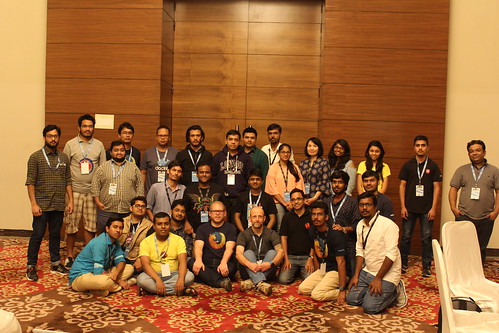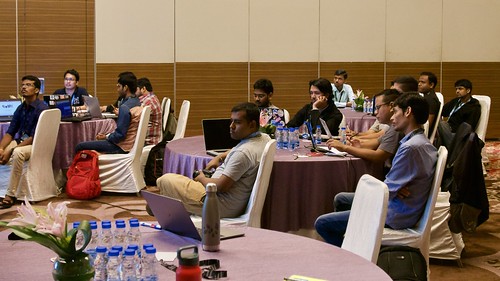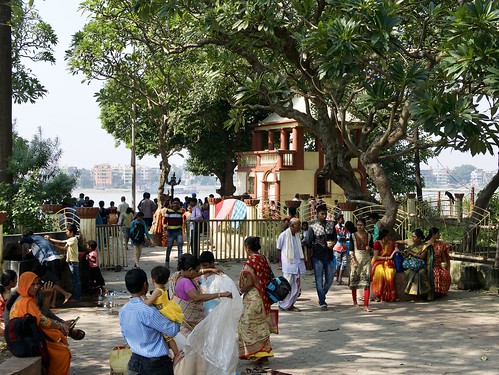In case you’re wondering “Uhm, what year are we in again?”, don’t worry: it’s April 2018, and this is a long overdue post that I owe to our large community of Indic locales.
Last November, Jeff, Peiying and I (flod) headed to Kolkata for the last of our planned localization workshops. The group of languages represented at the event included Bengali (both Bangladesh and India), Gujarati, Hindi, Kannada, Marathi, Nepali, Odia, Tamil and Telugu. If you’re surprised by the number of languages, consider that India alone has 22 languages listed in the Indian Constitution, but that’s only the tip of the iceberg, with a much larger variety of languages spoken, and sometime officially recognized at the State level.
 After successfully testing the unconference approach in previous events, like Berlin during the summer, we decided to push the boundaries and enter the weekend without an agenda: localizers would own the event, propose topics at the beginning of each day, vote on a schedule, and drive the discussions. In hindsight, I think this was a successful experiment: several participants came up with topics and in some case gave presentations on subjects they cared about. I felt like every person in the room was able to actively participate and be heard.
After successfully testing the unconference approach in previous events, like Berlin during the summer, we decided to push the boundaries and enter the weekend without an agenda: localizers would own the event, propose topics at the beginning of each day, vote on a schedule, and drive the discussions. In hindsight, I think this was a successful experiment: several participants came up with topics and in some case gave presentations on subjects they cared about. I felt like every person in the room was able to actively participate and be heard.
 Here are a few personal takeaways:
Here are a few personal takeaways:
- Locales in the area share the same struggle that other communities express: it’s hard to find new contributors, it requires a lot of time and resources to train them, and they might end up leaving the project shortly after. For sure, we should – and will – invest in making mentorship easier in Pontoon. We want to be able to have discussions about translations directly within the tool, to track quality metrics over time for each contributor, and not risk losing potential contributors when managers are inactive for an existing locale.
- They feel a struggle with other parts of the Mozilla project, attracting volunteers from different functional areas. That’s something that we haven’t heard in previous events, and it might be explained with the success of specific initiatives in the region.
- The usage of local languages vs English is quite low in India, compared to other areas of the world. We know there are some possible cultural explanations for this, for example knowing English could represent a mean to a better job, but we also look forward to the multilingual improvements that we plan for 2018/19, to see if that’s going to change the situation by lowering the barrier to access other languages within the browser.
- It’s always fruitful to spend some time showing how to test the browser, and how to use tools like Pontoon and Transvision. And, this time, I didn’t even have to do a presentation about Transvision (it was proposed and driven Mak from bn-BD) 🙂
You can also read the report of the event from the localizers’ perspective, with a lot more details on the discussions, by reading the blog posts from Drashti, Bala and Selva.
 A big thanks to Biraj for helping with the organization, giving us a brief tour of the city, and making my first trip to India a pleasant experience.
A big thanks to Biraj for helping with the organization, giving us a brief tour of the city, and making my first trip to India a pleasant experience.









No comments yet
Post a comment